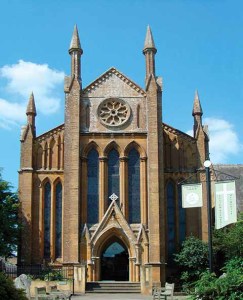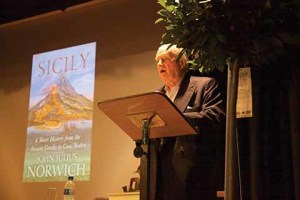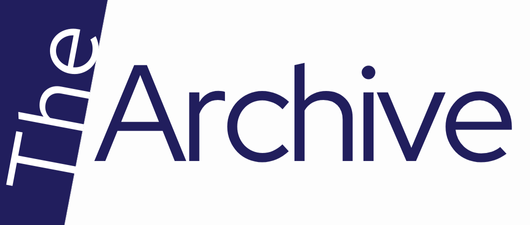Sherborne’s literary festival
Tony Burton-Page tells how Sherborne celebrates the written word
Published in October ’17
Sherborne is not, strictly speaking, a cathedral town, although its magnificent abbey is a cathedral in all but name. However, its artistic status is commensurate with the best of such towns, its reputation enhanced nationwide by the many festivals associated with it. Inevitably, music figures significantly in a town dominated by its ecclesiastical pedigree, and the Sherborne Abbey Festival attracts musicians of the highest calibre.
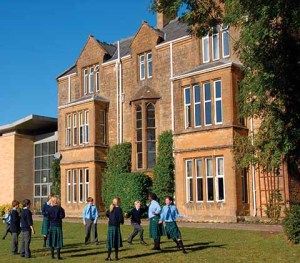
The Digby Memorial Hall has been used on many occasions by speakers at the Sherborne Literary Festival
Credit: Nicola Spooner
It was this festival which was partly responsible for the birth of the Sherborne Literary Festival. Judith Spelman, a journalist who moved to the town in 2007, was deeply impressed by the superb standard of the music at the Abbey Festival, and it set her wondering whether it would be possible to broaden its range to include a literary input – following the example set by such festivals as Edinburgh and Aldeburgh. Her idea did not find favour, however, so she set out to initiate a book festival in its own right. She had previously been involved in organising the Stamford Book Festival and the Oundle Festival of Literature, so she was no stranger to this world. She enlisted the help of Roger Johnson, the founder of the Sherborne International Film Festival (see the October 2015 issue of Dorset Life), who has a background in tourism and marketing.
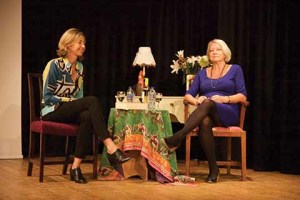
Kate Adie, who moved to Dorset several years ago, has been a guest speaker at two Festivals
Credit John Gaye
The first step was to start the Sherborne Literary Society – or rather, re-start it. There had been a Sherborne Literary Institute in the 19th century, which achieved fame beyond the confines of the town because of its association with Charles Dickens and his closest friend, the actor William Macready. Macready had retired from the stage at the height of his career and had come to live in Sherborne, where he rented Sherborne House from the Digby family from 1850 until 1860.
The 19th-century incarnation of the Sherborne Literary Society was primarily educational in its aims, which were declared to be for ‘the intellectual improvement and recreation of its Members’. Macready firmly believed in the value of education and wanted to bring literacy to the working classes. He developed the Sherborne Literary Institute, which moved into the stable block of Sherborne House with Lord Digby’s blessing, and in addition he started what Macready’s biographer describes as ‘a night-school for labourers’ children’, which received high praise from the 1858 Royal Commission into Popular Education. But he also encouraged the reading of literature, and his friendship with Dickens gave him connections to other writers. Not only Dickens but also William Makepeace Thackeray (author of Vanity Fair) and John Forster (Dickens’s biographer) came to deliver lectures and give readings of poetry and prose. When Dickens gave a reading of A Christmas Carol in aid of the Institute in December 1854, the Sherborne Mercury reported that ‘the room was crowded to excess and many were unable to obtain admission. The reading occupied nearly three hours, to the great delight of the audience.’
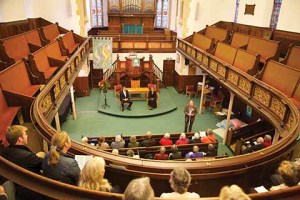
Judith Spelman also had connections with the world of literature, and one of the first speakers for the newly-revived Sherborne Literary Society (120 years after the demise of the original institution) was Joanne Harris, author of Chocolat. Penny Junor also visited Sherborne to talk about her new book on Prince William at the first of the annual literary luncheons that Judith introduced. But the first event was a celebration of World Book Night, which took place on 23 April 2012, Shakespeare’s birthday, when the society gave out free books and introduced the new society and the coming festival. It came as no surprise when a great number of local people signed up for membership of the society. The funds brought in by the subscriptions were enough for Judith to go ahead with booking speakers and venues for a festival that October. Subsequently, further funding came from Sherborne Town Council through the Simon Digby Memorial Trust. Unfortunately, Roger Johnson had to step down because of illness, but also on the newly-formed committee was another Sherborne resident, Sue Adams, who not only arranged the venues but organised an exhibition celebrating what would have been the sixtieth birthday of her brother Douglas, the author of The Hitchhiker’s Guide to the Galaxy, who had died suddenly in 2001 at the age of 49. He had worked on the Hitchhiker’s Guide books and other projects at his mother’s house in nearby Stalbridge. The exhibition displayed some of Douglas’s effects, including some early drafts of ideas for the Hitchhiker’s Guide series.
Others taking part in that first festival were Kate Adie, the celebrated war correspondent, who had moved to Dorset that summer. John Suchet also came to Sherborne, introducing his new book, Beethoven – The Man Revealed. Carole Matthews and Sophie Hannah talked about their new books. Roger Norman, an alumnus of Sherborne School, introduced his novel, Shadowborne, a historical fantasy set in his old school. It was in the Old School Room there that Peter Hobday chaired a debate on the impact of technology on the written word. Countryside guru Robin Page gave a talk on ‘Life in a Disappearing Countryside’. The festival opened with a talk by Canon Eric Woods, Vicar at the Abbey, a great admirer of the venerable poet-priest R S Thomas, from whose poetry he quoted extensively; and it closed with Hitchhiker’s Guide veterans John Lloyd and Simon Brett reminiscing about their days working with Douglas Adams.
And all this over three days – a remarkable achievement for a first festival. More than a thousand tickets were sold for the events and people came from as far away as Yorkshire and Guernsey. On the back of this success, membership of the society continued to increase, so it was possible to extend the festival to five days in 2013. An innovation for the longer festival was the appointment of a writer-in-residence for its duration: Diana Cambridge, long-serving ‘agony aunt’ for Writing Magazine, was available every day to give drop-in consultations for aspiring writers, a role she resumed for the next two festivals. Mavis Cheek took over duties in 2016.
The 2013 festival was opened by Lady Carnarvon of Highclere Castle, the location for the television series , talking about her book, Lady Catherine and the Real Downtown Abbey. Among other writers invited to Sherborne were Santa Montefiore, educated in Dorset at Hanford and Sherborne, introducing her new Secrets of the Lighthouse, and Kate Adie, returning with her new Fighting on the Home Front.
Thus the template had been set for future festivals, and although many well-known writers came to Sherborne over the next years, Judith Spelman was determined that the festival should focus on books rather than on celebrities. ‘Reading remains an important part of our lives, and we try and encourage young people in the delights of finding a new author and revelling in their words,’ she wrote in her introduction to the 2015 festival.
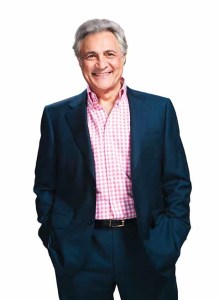
John Suchet has talked to Festival patrons about two of his pet subjects – Beethoven and Johann Strauss
‘I’m passionate about books,’ Judith says. ‘The actual feel, the smell, the touch – I could live just with a house full of books! And I’m just as passionate about getting children to be excited about reading books.’ Hence the festival has hosted the prolific children’s writer, Ian Whybrow (creator of Harry and the Bucketful of Dinosaurs), and Paul Stickland has entertained young visitors with his Dinosaur Roar series and his pop-up books. 2016 was the tenth anniversary of the publication of the Sir Charlie Stinky Socks series, and its author and illustrator, Kristina Stephenson, came to Sherborne to celebrate. Recent festivals have involved parallel events for children from local schools and other young people, masterminded by Lucy Beney, at the Gryphon School and other venues, and there are creative writing workshops and writing competitions for all ages.
Judith Spelman handed over the reins to John Gaye after four years, but her experience in running festivals led Little Brown to offer her a contract to publish The Festival Organiser’s Bible (the publishers’ title, she modestly insists) and let her return to her day job of writing. ‘Now I’m just an ordinary member of the festival-going public,’ she says. At the 2017 festival she will be able to hear Charles Spencer (younger brother of Princess Diana, and himself the founder of a literary festival at the family seat, Althorp) talking about his new book, To Catch a King, which tells the story of Charles II’s six weeks on the run from Cromwell. There will also be the opportunity to see and hear poet Roger McGough in action, his poetry being well-known to the young and his musical skills familiar to those who remember his days in the Scaffold.
But the Sherborne Literary Festival needs no help from Lily the Pink’s Medicinal Compound, for in its comparatively short lifespan it has established itself as one of Dorset’s most prestigious events, one for every book-lover to put in the diary.
